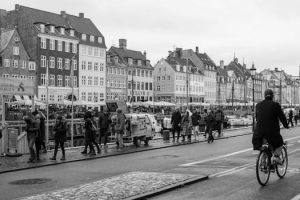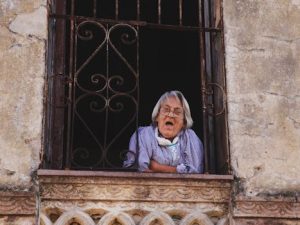Sleep Tourism: Hotels Prioritizing Rest Over Sightseeing
Are you tired of jam-packed travel itineraries, rushing from one tourist spot to another without any time for rest or relaxation? Well, we have some good news for you – a new trend in the tourism industry is emerging, and it’s all about prioritizing rest and relaxation over sightseeing. Yes, you read that right. Sleep tourism, also known as restorative or wellness tourism, is quickly gaining popularity as more and more hotels are focusing on providing guests with the ultimate rejuvenating experience. In this article, we’ll delve into the world of sleep tourism and explore why hotels are shifting their focus from sightseeing to rest.
The Concept of Sleep Tourism
The concept of sleep tourism revolves around the idea of providing travelers with a well-deserved break from their hectic and stressful lives. The main purpose is to offer visitors a peaceful and restorative environment that promotes both physical and mental relaxation. With the increasing emphasis on self-care and wellness, sleep tourism aims to provide guests with an experience that goes beyond the traditional travel goals of exploring new places and trying new cuisines.
The Importance of Rest and Relaxation
In today’s busy world, rest and relaxation are often overlooked in favor of productivity and efficiency. However, taking the time to rest and recharge is crucial for maintaining a healthy mind and body. According to the National Sleep Foundation, adults should aim for 7-9 hours of sleep each night for optimal health and well-being. Yet, with hectic travel itineraries and the excitement of exploring new destinations, many travelers often sacrifice their sleep to fit everything in.
Enter Sleep-Friendly Hotels
Sleep-friendly hotels are becoming a game-changer in the travel industry. These hotels go above and beyond to ensure their guests have the best sleep experience possible. From soundproof rooms and luxurious bedding to relaxing spa treatments and personalized sleep programs, sleep-friendly hotels are making rest a top priority.
Unique Sleep Amenities
Some hotels are taking sleep amenities to a whole new level. The Westin Hotels, for example, offers their guests a “Sleep Well Kit,” which includes lavender essential oil, an eye mask, and a sound machine to aid with relaxation and promote better sleep. Other hotels have their own signature sleep therapies, such as the Ritz-Carlton’s “Soothing Sleep Channel,” which features guided meditations and calming music to help guests drift off to sleep.
Designing for Rest
Hotels are now also placing a strong emphasis on room design and layout to promote better rest. From Feng Shui-inspired rooms to technology-free zones and blackout curtains, these design elements aim to create a peaceful and calm environment for guests to unwind and get a good night’s rest.
The Benefits of Sleep Tourism
Aside from providing the much-needed opportunity for rest and relaxation, sleep tourism also has various benefits for both travelers and hotels. For travelers, it offers a chance to disconnect, de-stress, and recharge. For hotels, it provides a unique selling point that sets them apart from their competitors and attracts a specific type of clientele – those seeking rest and rejuvenation.
The Future of Sleep Tourism
The sleep tourism trend is expected to continue its upward trajectory in the coming years. With the increasing demand for wellness and self-care activities, more hotels are likely to join the sleep-friendly movement and cater to travelers looking for a rejuvenating experience. Moreover, with the rise of remote work and digital nomads, staycations and wellness retreats could become even more popular options for those looking to escape the stresses of everyday life.
In Conclusion
Sleep tourism is a trend that is here to stay. With the growing awareness of the importance of rest and relaxation, more travelers are seeking out destinations and hotels that offer a balance between sightseeing and rest. So next time you plan a trip, consider adding a sleep-friendly hotel to your itinerary. After all, who wouldn’t want to return home feeling refreshed, rejuvenated, and well-rested? Sweet dreams!







